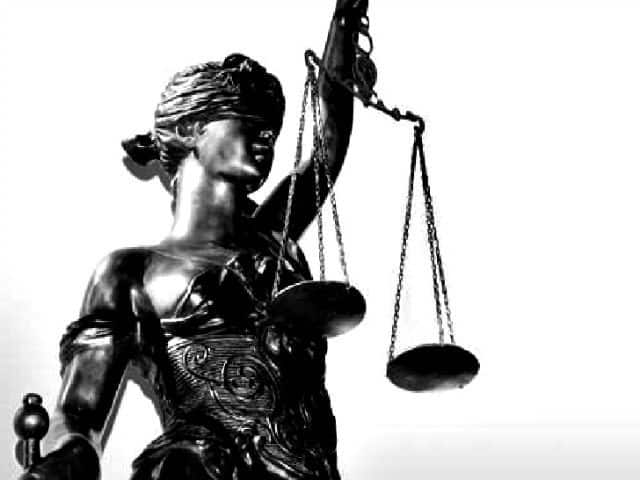On Monday, just before midnight, the State of Texas filed a lawsuit that is far more important than all of the others surrounding the presidential election of November 3rd.
Texas brought a suit against four states that did something they cannot do: they violated the U.S. Constitution in their conduct of the presidential election. And this violation occurred regardless of the amount of election fraud that may have resulted. The four defendant states are Georgia, Michigan, Pennsylvania, and Wisconsin.
Texas filed the suit directly in the Supreme Court. Article III of the Constitution lists a small number of categories of cases in which the Supreme Court has “original jurisdiction.” One of those categories concerns “Controversies between two or more states.” Texas’s suit is exactly that. The Supreme Court has opined in the past that it may decline to accept such cases, at its discretion. But it is incumbent upon the high court to take this case, especially when it presents a such a cut-and-dried question of constitutional law, and when it could indirectly decide who is sworn in as President on January 20, 2021.
The Texas suit is clear, and it presents a compelling case. The four offending states each violated the U.S. Constitution in two ways.
First, they violated the Electors Clause of Article II of the Constitution when executive or judicial officials in the states changed the rules of the election without going through the state legislatures. The Electors Clause requires that each State “shall appoint” its presidential electors “in such Manner as the Legislature thereof may direct.”
In the early years of the Republic, most state legislatures appointed their presidential electors directly, without holding a popular election for President. That would change during the early decades of the nineteenth century. But the constitutional principle remained the same. Regardless of whether a state appoints its electors by a vote in the legislature or by a vote of the people, it is the state legislature — and only the state legislature — that sets the rules.
Thus, when the Pennsylvania Supreme Court extended by three days the deadline for receiving mail-in ballots, contrary to the law passed by the state legislature, the state court changed the rules in violation of the Electors Clause. Similarly, when Georgia’s Secretary of State responded to a lawsuit by entering into a Compromise Settlement Agreement and Release (i.e. a consent decree) with the Democratic Party of Georgia, and modified the signature verification requirements spelled out by Georgia law, that changing of the rules violated the Electors Clause.
The second constitutional violation occurred when individual counties in each of the four states changed the way that they would receive, evaluate, or treat the ballots. Twenty years ago, in the landmark case of Bush v. Gore, the Supreme Court held that it violated the Equal Protection Clause of the Fourteenth Amendment when one Florida county treated ballots one way, and another Florida county treated ballots a different way. Voters had the constitutional right to have their ballots treated equally from county to county.
So when election officials in Wayne County, Michigan, ignored the requirements of Michigan law and denied poll watchers access to vote counting, while other counties in Michigan followed the law, that violated the Equal Protection Clause. Similarly, in Wisconsin, when the Administrator of the City of Milwaukee Elections Commission ignored the requirements of Wisconsin law and directed election workers to write in the addresses of witnesses on the envelopes containing mail-in ballots, while ballots without witness addresses were deemed invalid elsewhere, that resulted in the unequal treatment of ballots in the state.
Importantly, the Texas lawsuit presents a pure question of law. It is not dependent upon disputed facts. Although these unconstitutional changes to the election rules could have facilitated voter fraud, the State of Texas doesn’t need to prove a single case of fraud to win. It is enough that the four states violated the Constitution.
The lawsuit asks the Supreme Court to remand the appointment of electors in the four states back to the state legislatures. As the Supreme Court said in 1892 in the case of McPherson v. Blacker, “Whatever provisions may be made by statute, or by the state constitution, to choose electors by the people, there is no doubt of the right of the legislature to resume the power at any time…”.
If Texas prevails, the four state legislatures could follow any number of courses in appointing their presidential electors. They could assess the election results and try to exclude those ballots that were counted in violation of state law in order to determine a winner, or they could divide their Electoral College votes between the two candidates, or they could follow a different path. But they have to follow the Constitution in whatever they do.
In the rest of country, the states followed the constitutional rules in appointing presidential electors. The offending states cannot be allowed to violate those same rules. It’s not just a matter of constitutional law. It’s a matter of basic fairness.
Kris W. Kobach is an expert in immigration law and election fraud. He served as Kansas Secretary of State during 2011-2019. He was a professor of constitutional law and immigration law during 1996-2011 at the University of Missouri-KC.



